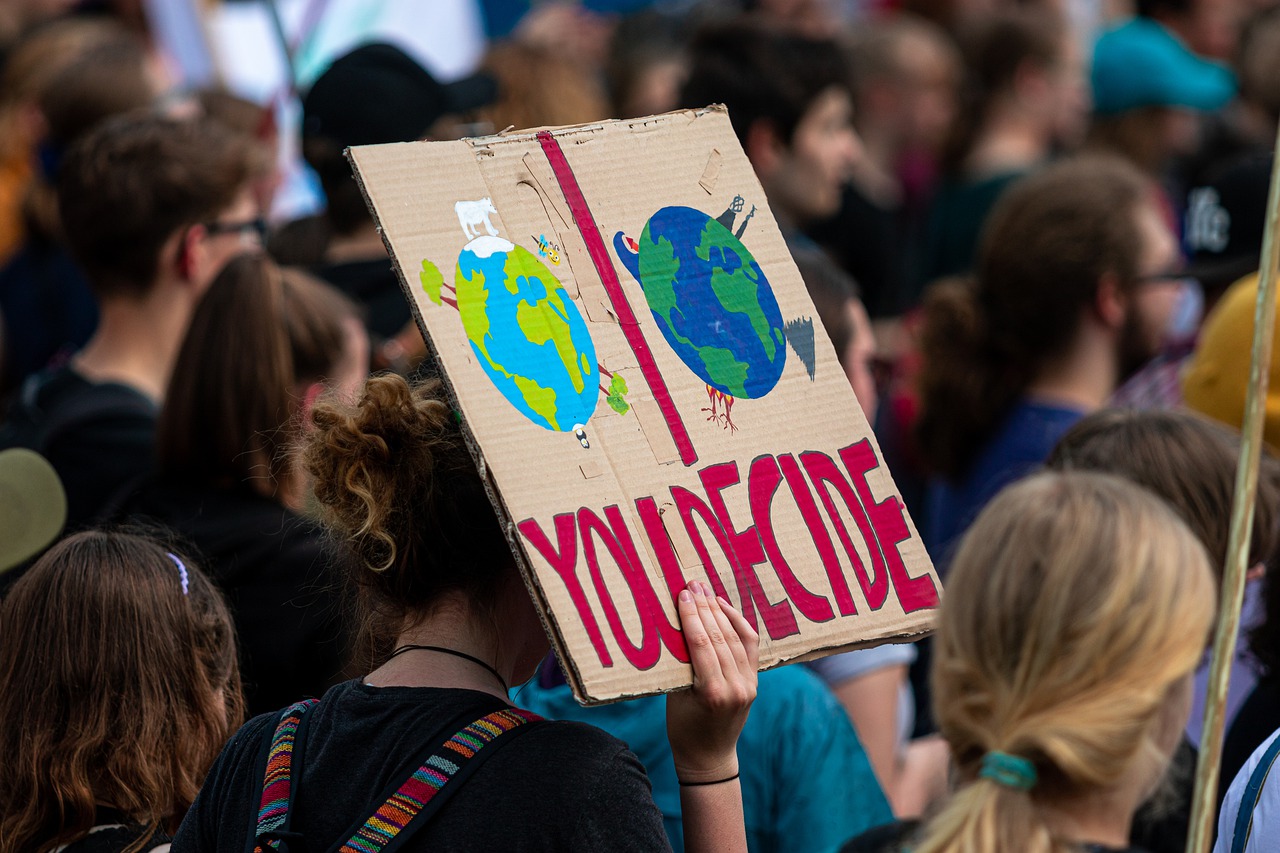Youth’s Civic Participation: Practices for enhancing active citizenship and raising youth’s environmental awareness to combat climate change

Abstract: Active citizenship is an umbrella concept regarding the rights and responsibilities of citizens. It urges people to be more engaged with the world and communities around them, thus, practicing active citizenship can be as simple as volunteering or as complex as organizing actions with others to tackle a serious global problem, such as climate change. Youth are the core of the development process of each nation with holding the key of changing or continuing policies but their contributions will not achieve full impact unless they are engaged in their nation as a whole – encouraging and equipping young people with necessary resources to become active citizens, agents of solidarity and positive change inspired by EU values. We need citizens who feel their voices are heard and matter in the shaping of public policy; and who experience cultural inclusivity as a natural and dynamic part of who they are and of the good society.
Keywords: Active Citizenship, Environmental and Sustainable awareness, Good practices
What is active citizenship?
Citizens have a role to play in building a better, a more democratic society, and cultivating active citizenship skills and attitudes is critical. Active citizens are not only aware of their rights and responsibilities, but also demonstrate solidarity with others and are willing to contribute to society. The new priorities for European cooperation in education and training, which emphasize the role of education in promoting equity and non-discrimination and in instilling fundamental values, intercultural competences, and active citizenship, include developing active citizenship and civic competences.
What are youth’s efforts?
Youth efforts range from local initiatives to international campaigns, some influential enough to reach policymakers and national leaders. As more youth connect they are also using virtual platforms to educate, raise awareness, expand outreach and share knowledge. Additionally, youth are taking advantage of the availability and accessibility of information and technology to engage in all levels of environmental governance, especially towards implementing the Sustainable Development Goals (SDGs).
According to the World Programme of Action on Youth (WPAY), youth participation is crucial, but supporting youth participation and engagement in environmental preservation requires a holistic and inclusive approach. Youth are willing to take the lead to meaningfully engage in platforms related to the protection of the environment, at the local, national or global level. However, to harness their talents and innovations, there is need to ensure that youth are equal partners and torchbearers in creating and implementing the goals toward environmental sustainability.
Think about your environmental footprint and reduce your personal impact as far as possible
Youth have the power to make a change and these are some steps that you can adapt in your lifestyle:
- Start acting
- Volunteer
- Encourage others to make a change
What does the E.U. do?
The European Union is strongly in favour of addressing climate change at an international level. European Commission President Ursula von der Leyen called for a European Green Deal in December 2019. The Deal has an ultimate goal: make Europe become the world’s first climate-neutral continent by 2050.
Climate change and environmental degradation are an existential threat to Europe and the world. To overcome these challenges, the European Green Deal will transform the EU into a modern, resource-efficient and competitive economy, ensuring:
- no net emissions of greenhouse gases by 2050
- economic growth decoupled from resource use
- no person and no place left behind
How can every one of us make a change?
There are different ways to get active. “Every little bit helps. I know it can feel like being one person with a sign doesn’t make any political difference or being just one person flying less does not make a difference, but if we all do that, then it does make a difference. So believe in that and mobilise“, says Monika, from the European Students’ Union.
Go to strikes, get informed, get involved in youth-led NGOs and local initiatives, and in politics suggest Nathan, Corentin and Alex. Education to sustainable development should be a priority to raise awareness amongst young people, stressed Monika.
An environmentally oriented lifestyle is embodied in a person’s presence of environmentally friendly values, corresponding attitudes oriented towards the natural environment. Environmental models of behaviour are focused on preserving and improving the natural environment. Therefore, the practical activity of people is aimed at preserving nature and complies with the following principles:
- The reduce principle—reducing consumption, that is, avoiding unnecessary actions and purchases.
- The principle of reuse—reuse, donate, or alter unnecessary things that can have a “second life”.
- The principle of recycling—recycling of waste, as 80% of what is in the bin can be returned for recycling.
- The principle of refuse—refusal of the unnecessary, as refusing unnecessary purchases reduces the amount of garbage.
Conclusion
No matter where we live, we can all play our part for climate action, good health and well-being, whether it is through the personal choices we make in our households, the community initiatives we undertake, or by getting involved in policy and advocacy action. We might focus on different issues, such as waste management or land preservation.
The collective agency of adolescents and youths is recognized as one of the most significant resources for achieving the 2030 Sustainable Development Goals, including combating climate change and its impacts. Although many of us are already taking leadership roles, we will also be the next generation of decision-makers and global leaders. Far from being passive victims, young people from all over the world are unanimously demanding that governments and other stakeholders, including industry, citizens and civil society, take action to address the climate emergency.
References
A European Green Deal. (2019, October 12). European Commission – European Commission. Retrieved on 11 April 2022, from https://ec.europa.eu/info/strategy/priorities-2019-2024/european-green-deal_en
Beyond 2030: Youth Taking Charge of the Environment | Youth Flash Newsletter. (sd). UNITED NATIONS Division for Social Policy and Development Department of Economic and Social Affairs. Retrieved April 11, 2022, from https://www.un.org/development/desa/youth-flash/feature/2018/06/beyond-2030-youth-taking-charge-of-the-environment/
Murray, J., Tshabangu, B., & Erlank, N. (2010). Enhancing Participatory Governance and Fostering Active Citizenship: An Overview of Local and International Best Practices. Politikon, 37(1), 45–66. https://doi.org/10.1080/02589346.2010.492149
School EducationGateway. 2016. Education for active citizenship: raising the citizens of tomorrow. [online] Available at: <https://www.schooleducationgateway.eu/en/pub/latest/practices/education-for-active-citizensh.htm> [Accessed 5 April 2022].
Seyedali Ahrari, Jamilah Othman, Salleh Hassan, Bahaman Abu Samah and Jeffrey Lawrence D`Silva, 2014. Active Citizenship by Active Learning. Journal of Applied Sciences, 14: 2450-2459.
Shutaleva, A., Martyushev, N., Nikonova, Z., Savchenko, I., Abramova, S., Lubimova, V., & Novgorodtseva, A. (2021). Environmental Behavior of Youth and Sustainable Development. Sustainability, 14 (1), 250. https://doi.org/10.3390/su14010250

The European Commission’s support for the production of this website does not constitute an endorsement of the contents, which reflect the views only of the authors, and the Commission cannot be held responsible for any use which may be made of the information contained therein.
Project Number: 2021-1-ES02-KA220-YOU-000028702